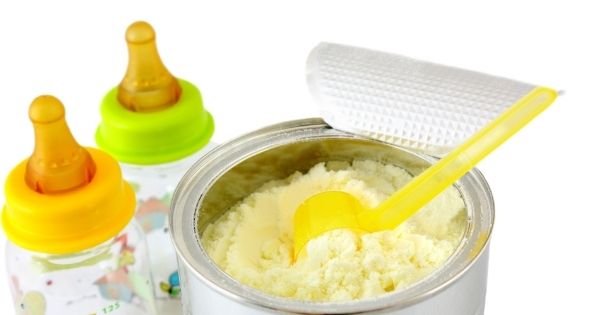The benefits of breast milk for the baby can not be overestimated. It has been scientifically proven that breastfeeding meets all the needs of the baby’s body in the first year of life and strengthens the immune system. In addition, it is also a close emotional connection between mother and baby.
There are different reasons when a mom has a low milk supply or breastfeeding is impossible. In these cases, paediatricians recommend feeding infants with baby formula. Nowadays, a wide range of formulas helps parents provide balanced nutrition taking into account a particular baby’s needs.

How to choose a Formula?
Most infant formulas are designed to be very close to breast milk and meet all the nutritional requirements as much as possible. When it comes to formula feeding, you can always rely on your paediatrician’s advice. These recommendations will help you choose the right baby formula based on your little one’s individual needs.
The complete information about the prescribed formula milk can help parents avoid babies’ most common digestive issues.
Different Types of Infant Formula
Usually, infant formula comes in three forms:
- Powder (you should add the appropriate amount of water to mix it)
- Liquid concentrate (it should also be mixed with water)
- Ready-to-feed (it doesn’t require additional water)
Cow’s milk-based formula is the most widespread type of baby formula on the market. Such formulas are very close to breast milk, and most babies digest it easily. The right balance of nutrients in cow’s milk-based formula positively impacts a baby’s further healthy development.
Goat’s milk-based formula is suitable for both healthy babies and babies with a cow’s milk allergy. The goat’s milk formula is easier to digest and less irritates the baby’s stomach. The main disadvantages of these milk products are a small product line and a higher price.
Soy-based formula is commonly used for babies with an allergy to cow’s milk protein. Before switching to soy formula, parents need to make sure their baby is not allergic to soy. This type of baby formula must be prescribed only by the paediatrician.
Specialised formula is an option for babies who have particular nutritional needs or specific medical conditions. Protein hydrolysate formulas are available for premature babies or babies with risk factors for developing allergies:
- The formula for premature babies can be marked with a number “0” or the prefix PRE.
- Formula with probiotics is prescribed for babies suffering from digestive issues.
- Hypoallergenic formula (HA) is intended only for babies who are allergic to cow’s milk protein.
- The iron-fortified formula is suitable only for infants with anaemia or iron deficiency.
- The Anti-reflux formula is designed to reduce reflux and frequent regurgitation.

Formula Intolerance in Babies
Even carefully chosen baby formula can cause digestive issues in some cases. Formula intolerance is not the same as an allergy. It means that a particular formula ingredient irritates your baby’s GI tract. As a result, this formula is hard to digest for your little one. If your baby has the following symptoms, you should see the paediatrician:
- Diaorrhea
- Constipation
- Vomiting
- Gas
- Colic symptoms
- Signs of abdominal pain
You may need to switch to a different formula after your baby’s examination and allergy test. Usually, the symptoms will go away on their own after the change.
The best infant formula is the one that perfectly suits the baby. Sometimes healthy babies get used to the formula milk without any problems, other time you have to try out products of different types and brands to find the optimal solution. In any case, the first step in choosing a baby’s nutrition should be a recommendation by a paediatrician. The doctor will advise the proper nutrition based on the baby’s medical conditions and other factors.
 Kaboutjie SA Mommy Blogs by Lynne Huysamen
Kaboutjie SA Mommy Blogs by Lynne Huysamen




